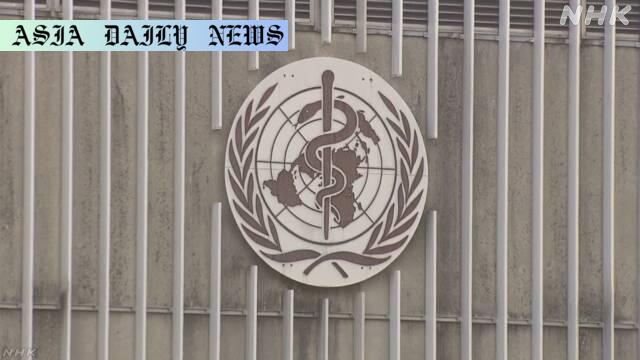Pandemic Accord: The United States withdraws from WHO-led negotiations on pandemic prevention, preparedness, and response.
Key Point 1: The US, under the Trump administration, decided to withdraw from WHO-led pandemic accord negotiations.
Key Point 2: WHO member states aim to adopt a pandemic preparedness deal at their May assembly.
Key Point 3: The proposed accord focuses on sharing technology and data to combat pandemics holistically.
Key Point 4: The WHO expressed regret over the US decision, but negotiations are progressing among other member states.
Key Point 5: Leaders stress the importance of cross-border collaboration to tackle global health crises.

Background: Understanding the Pandemic Accord
The pandemic accord, initiated by the World Health Organization (WHO) in 2022, is a global framework designed to strengthen pandemic prevention, preparedness, and response. The initiative stems from lessons learned from the COVID-19 pandemic and aims to promote international collaboration through the sharing of technology, resources, and critical data regarding pathogens with pandemic potential.
The US Withdrawal: A Shocking Development
In a surprising move, the United States, under the administration of President Donald Trump, has officially withdrawn from the intergovernmental negotiations of this accord. WHO Director-General Tedros Adhanom Ghebreyesus confirmed this development during discussions in Geneva. While expressing regret, Tedros emphasized that participating member states have achieved significant progress on numerous issues and remain optimistic about finalizing the agreement.
The Implications of US Non-Participation
The decision by one of the world’s largest economies and a key global health player to opt out of the pandemic accord holds significant implications. The US withdrawal could impact funding, technological exchanges, and global leadership in responding to pandemics. Critics highlight that a unified, international approach is essential to addressing crises that transcend national borders.
The Accord’s Pillars: Promoting Equity and Collaboration
The draft pandemics accord emphasizes equitable access to vaccines, medicines, and health technologies for all countries, particularly developing nations. It also focuses on establishing mechanisms to share information on emerging pathogens promptly. WHO negotiators argue that nations must collaborate to mitigate the devastating impact of future pandemics, emphasizing mutual trust and collective action.
The World Responds
Other member states continue deliberations, with particular urgency as the May WHO assembly approaches. A South African delegate co-chairing the discussions highlighted the importance of solidarity, noting that pandemics do not recognize geographical or political boundaries. This recognition comes at a critical time when the global community is grappling with health inequalities exposed by the COVID-19 crisis.
What’s Next?
Negotiators remain hopeful that the pandemic accord will garner widespread support despite the US’s absence. They aim to finalize and adopt the agreement during the upcoming WHO meeting. The accord carries significant potential to redefine global strategies for pandemic preparedness and prevent future devastation caused by biological threats.
The timing of this agreement is crucial as the world faces growing risks of zoonotic diseases, drug-resistant infections, and other emerging health threats. With or without the US, the adoption of the accord could set a new global benchmark for health security.



Commentary
The Global Stakes of Pandemic Preparedness
The decision by the United States to withdraw from WHO-led negotiations on the pandemic accord has far-reaching implications that extend beyond its borders. Global pandemics underscore the interconnectedness of nations, and the absence of a key player like the US risks undermining the collective effort needed to address future health crises. By stepping away, the US may miss critical opportunities to shape global health policies and frameworks that could significantly benefit its citizens and the world.
The Need for Solidarity
Collaboration and solidarity are the cornerstones of effective pandemic management. No country, regardless of its resources or infrastructure, can completely shield itself from the impact of pandemics. The COVID-19 outbreak demonstrated the catastrophic consequences of a delayed or fragmented response. As the world grapples with the aftershocks of that pandemic, it is crucial to embrace multilateral approaches rather than opt-out of them.
Balancing Leadership and Autonomy
Many may argue that the decision reflects a desire to assert independence and prioritize national interests. However, leadership does not equate to isolation. In fact, impactful leadership often lies in the ability to unite others and provide solutions that benefit the collective. By distancing from the accord, the US risks being perceived as abdicating a leadership role and fracturing global trust in its commitment to public health initiatives.
A Call for Reconsideration
While the US’s withdrawal is regrettable, it is not irreversible. There remains an opportunity for reevaluation of this stance, especially as the negotiations progress and their global importance becomes increasingly evident. Rejoining the accord would reflect not only a commitment to addressing pandemics comprehensively but also to leading by example in a world that demands unity over division.